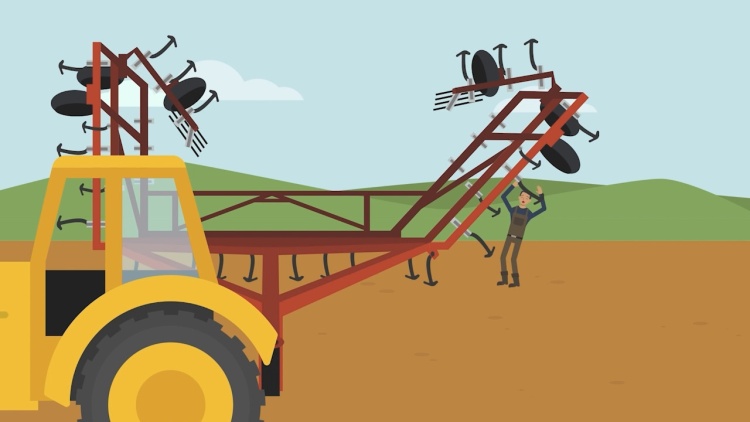Lovick v. Wil-Rich
Iowa Supreme Court
588 N.W.2d 688 (1999)
- Written by Nicholas Decoster, JD
Facts
In May 1993, Leo Lovick (plaintiff) was injured while attempting to lower the wings on a farming cultivator. Lovick had been under the left wing of the cultivator, which fell and struck him after he removed a metal pin used to hold the wing in an upright position. The linkage to a hydraulic cylinder, which should have held the wing in place, had broken. Wil-Rich (defendant), the manufacturer of the cultivator, had become aware of the danger posed by falling cultivator wings after several incidents in the 1980s. In 1988, Wil-Rich began fixing warning labels to cultivators warning users not to go under the wings. Lovick’s cultivator was manufactured and sold in 1981. Although Wil-Rich was aware of the danger to users of older cultivators, Wil-Rich did not implement a post-sale warning program until 1994 because of the practical difficulties of identifying and locating owners of older cultivators. Lovick brought a products-liability claim against Wil-Rich for failure to provide an adequate warning. The trial court instructed the jury to find Wil-Rich liable if Wil-Rich was negligent in failing to provide Lovick with a warning. The jury returned a verdict in favor of Lovick, and the trial court denied Wil-Rich’s motion for a directed verdict. Wil-Rich appealed, arguing that the jury instruction constituted prejudicial error.
Rule of Law
Issue
Holding and Reasoning (Cady, J.)
What to do next…
Here's why 907,000 law students have relied on our case briefs:
- Written by law professors and practitioners, not other law students. 47,100 briefs, keyed to 996 casebooks. Top-notch customer support.
- The right amount of information, includes the facts, issues, rule of law, holding and reasoning, and any concurrences and dissents.
- Access in your classes, works on your mobile and tablet. Massive library of related video lessons and high quality multiple-choice questions.
- Easy to use, uniform format for every case brief. Written in plain English, not in legalese. Our briefs summarize and simplify; they don’t just repeat the court’s language.





